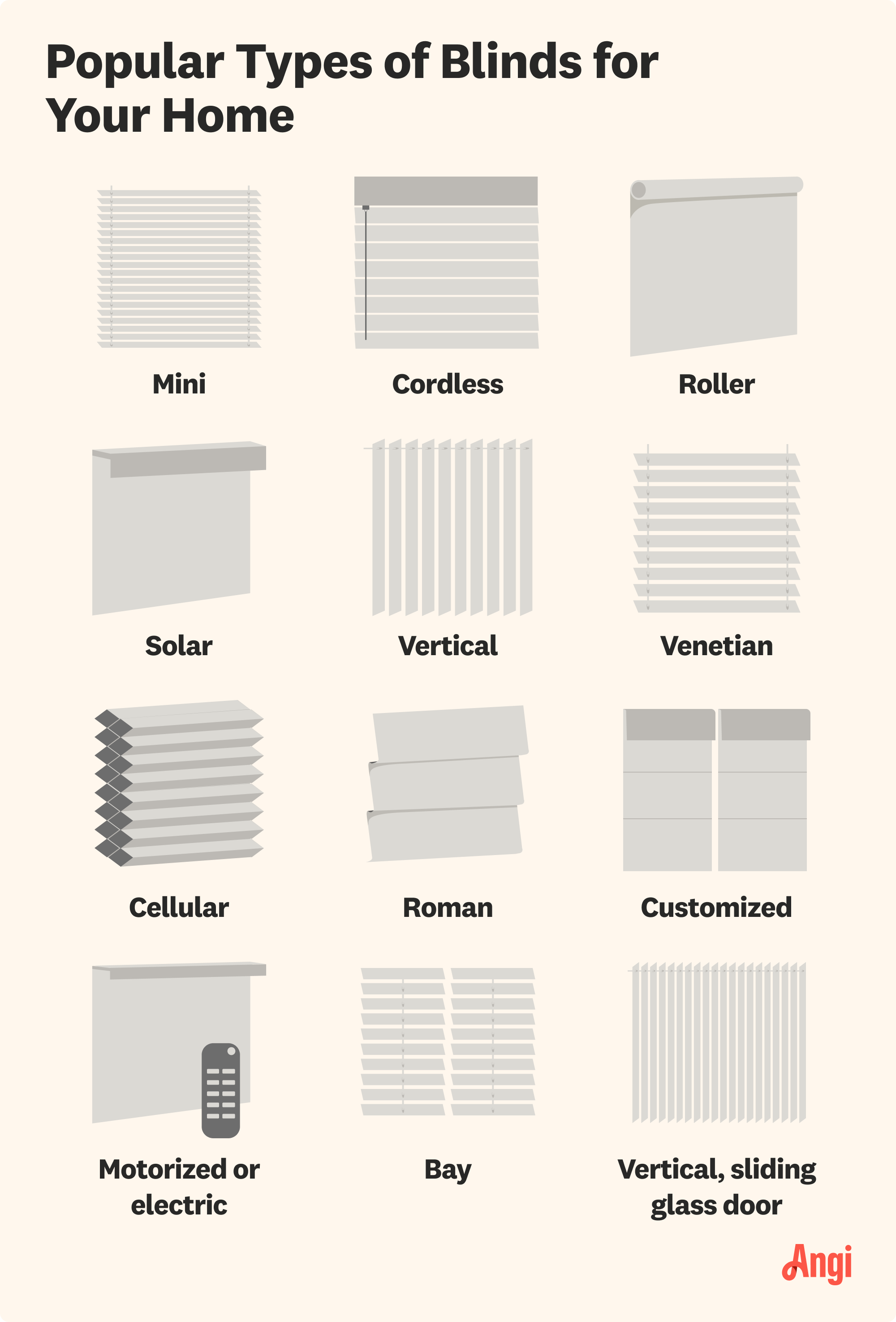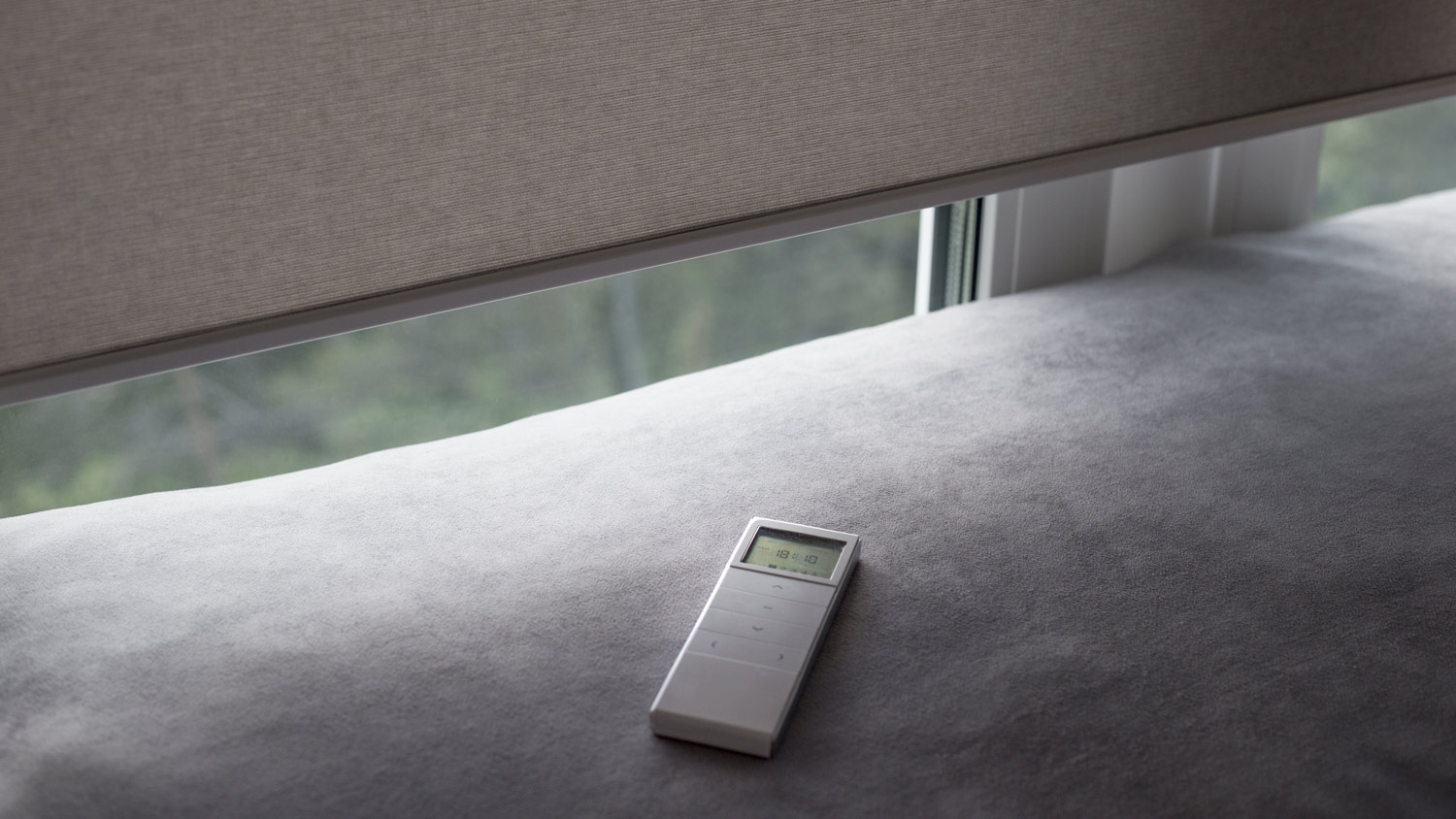
Estate shutters can add a stately appearance to your home and block out light. Learn how much estate shutters cost, depending on window size and material.
The average cost to install blinds in Charlotte is $592, and most homeowners spend between $163 and $1,066. Your out-of-pocket expense depends on the number of windows you plan to cover, the type of blinds you choose, and the project's complexity.


Charlotte homeowners should choose blinds that perform year-round in the city’s subtropical climate.
Many historic homes in the area have oversized or custom windows, making off-the-shelf blinds a tough fit.
Labor costs for new blinds start at $50 per hour, depending on size and complexity.
Set between the Catawba River and Lake Norman, Charlotte’s subtropical climate features muggy summers and year-round moisture, making blinds that reflect heat, resist humidity, insulate, and promote ventilation top choices for home comfort. Outfitting your Charlotte home with new window blinds costs an average of $592, with most projects ranging from $163 to $1,066.
From classic bungalows in North Davidson to newer builds in Ballantyne, many Charlotte, NC residences also feature oversized or custom-shaped windows, which means off-the-shelf options may not always cut it.
Window size greatly impacts the cost of new blinds, especially in Charlotte homes where unique architectural details are common. Take the arched transoms in stately Myers Park homes or the oversized bay windows in Cotswold’s mid-century builds—custom blinds are often the best way to achieve the right fit. Although these upgrades can increase your overall cost, they help maintain the charm and character of your home while also offering functionality.
| Window Size in Inches | Average Cost |
|---|---|
| 24 x 36 | $45–$140 |
| 24 x 48 | $55–$170 |
| 36 x 48 | $75–$230 |
| 36 x 72 | $110–$320 |
| 60 x 72 | $170–$500 |

Cellular shades are well-suited for the weather in the Queen City, offering insulation that helps keep interiors cool and comfortable. Homes with classic details and high ceilings benefit from the soft elegance of Roman shades, while motorized, smart blinds are gaining ground in newer builds, bringing effortless control to modern living. Vertical blinds provide sleek, functional coverage for oversized or tall windows that doesn’t crowd the space.
| Blinds Type | Top Feature | Average Cost |
|---|---|---|
| Mini | Narrow slats | $20–$140 |
| Cordless | Tangle-free, safer | $30–$330 |
| Roller | Simple, space-saving | $25–$350 |
| Vertical | Ideal for tall windows | $65–$350 |
| Venetian | Classic light control | $26–$400 |
| Cellular | Energy-efficient design | $65–$380 |
| Roman | Soft, elegant folds | $65–$400 |
| Custom | Made-to-fit | $65–$650 |
| Motorized or electric | Remote or smart control | $400–$600 |
| Bay | Fits angled bay windows | $165–$550 |
| Vertical, Sliding Glass Door | Covers wide openings | $135–$650 |
Homeowners in Charlotte may want to consider blinds that balance Southern charm and all-season performance.
Aluminum blinds are a classic option starting at $40. They offer heat-reflective properties, reducing cooling costs. Bamboo shades, which are currently on trend, are also relatively affordable. They are a sustainable choice, providing breathable coverage that complements the city’s greenery.
For added comfort, consider fabric shades with insulating liners. They help regulate indoor temperatures during steamy summers and cooler winters, especially in older homes or rooms with direct sunlight.
| Blinds Material | Features | Average Cost |
|---|---|---|
| Bonded polyester | Insulates, saves energy | $60–$380 |
| Plastic | Moisture-resistant | $35–$150 |
| Faux wood | Moisture-resistant | $45–$250 |
| Aluminum | Durable, reflects heat | $40–$180 |
| Bamboo | Sustainable, eco-friendly | $45–$200 |
| Fabric | Aesthetic, insulates | $65–$250 |
| Vinyl | Affordable, durable | $26–$300 |
| Leather | Elegant, some insulation | $90–$350 |
| Wood | Eco-friendly, moisture-prone | $45–$350 |
Most styles last six to 10 years, but local conditions can dramatically impact their longevity. If your blinds are cracking, sticking, or no longer blocking heat or cold, it might be time for an upgrade. Additionally, cities in North Carolina rank worse than average in terms of seasonal allergies. The combination of pollen, moisture, and sun can significantly reduce the lifespan of your blinds.
When it comes to finding the right blinds for your North Carolina home to suit your space, style, and the weather, a blinds installer in Charlotte can be an invaluable resource. They'll help you weigh your options for a job done right.
Charlotte’s cost of living runs about 1% below the national average, a small margin that won’t greatly impact local labor rates. For standard installations, homeowners can expect to pay $50 or more per hour for labor. While permits aren’t usually needed, costs may rise for ladder work, custom cuts, or navigating deep sills and unique trim, especially in Charlotte’s older homes.
Blinds installations in the Queen City are subject to a combined tax rate of 7.25%. Installation services that don’t qualify as capital improvements are subject to sales tax in North Carolina. Many installers include this in their overall pricing. However, if you're purchasing blinds separately, budget for taxes at checkout.
While not necessary, it's common to tip home service professionals between 10% and 20%, a solid baseline when you're happy with standard service. For routine tasks, a tip on the lower end is appropriate, while exceptional service or tackling a tricky job may warrant a larger gratuity.
Blinds may not add square footage or make a bold statement like a new deck, but they still offer meaningful value, even if they don't deliver a direct return on investment. They help regulate light and temperature, making your space more comfortable and efficient. Additionally, well-fitted blinds give buyers the impression of a home that has been thoughtfully cared for, ready to enjoy from the very first day.
Home is the most important place on earth, which is why Angi has helped more than 150 million homeowners transform their houses into homes they adore. To help homeowners with their next project, Angi provides readers with the most accurate cost data and upholds strict editorial standards. We survey real Angi customers about their project costs to develop the pricing data you see, so you can make the best decisions for you and your home. We pair this data with research from reputable sources, including the U.S. Bureau of Labor Statistics, academic journals, market studies, and interviews with industry experts—all to ensure our prices reflect real-world projects.
Want to help us improve our cost data? Send us a recent project quote to [email protected]. Quotes and personal information will not be shared publicly.
From average costs to expert advice, get all the answers you need to get your job done.

Estate shutters can add a stately appearance to your home and block out light. Learn how much estate shutters cost, depending on window size and material.

Discover the average window treatment cost, including price ranges and key factors, to help you plan your project with confidence.

Frayed blind strings can make your window blinds work ineffectively. Learn how to DIY restring blinds and fix cords in this step-by-step guide.

The differences between light-filtering and room-darkening window treatments are subtle but important. We’re sharing their pros and cons, how they complement your home and help you save on energy costs.

Wondering how much do motorized blinds cost? Discover 2025 prices, key cost factors, and tips to save on your motorized blinds installation.

Learn how to remove blinds yourself when you need to clean or replace window treatments.